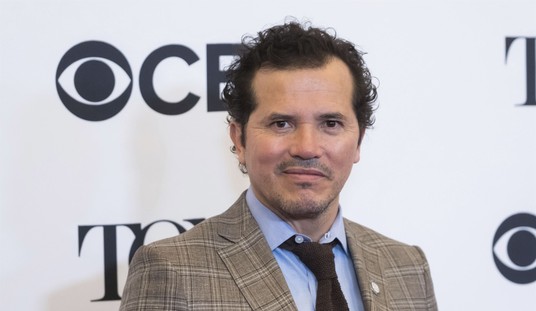Yes, children, there is an Obama Doctrine. The administration has now produced a national security strategy. Be afraid, be very afraid. And those who should be afraid are Americans and their friends, not their enemies.
The administration wants to prove, most of all, that it isn’t George W. Bush. But in doing so, it also proves it isn’t the Roosevelt, Truman, Eisenhower, Kennedy, Johnson, Reagan, Bush I, or even the Clinton administration, either.
It all looks good on paper: America is not a superpower. It is limited, and this circumscribed power requires bringing in lots of partners. Obama writes in the introduction of the strategy released last Thursday:
The burdens of a young century cannot fall on American shoulders alone. … Indeed, our adversaries would like to see America sap our strength by overextending our power.
Yet that point is missed. You don’t overextend precisely so you can concentrate on what’s important — say, pull out of Afghanistan and Iraq to focus on containing Iran. You don’t reduce commitments in order to abandon the remaining ones.
Much of this worldview is intended to counter what the left hates about George W. Bush. Yet while one can certainly argue Bush did not wisely use the resources of American power, that doesn’t mean American power itself isn’t there. The remedy for excessive unilateralism isn’t excessive multilateralism. And while there might be times or situations where such a response did little harm, the present day — with threats from revolutionary Islamism, an aggressive Iran-led alliance, anti-American leftists, and resurgent Russian and Chinese ambitious powers — makes the Obama Doctrine a very dangerous course indeed. While Obama argues that America faces no real military competitor and global power is increasingly diffuse, these are likely to be temporary conditions. If there’s going to be a vacuum, there are a number of candidates eager to fill it.
Obama’s doctrine calls for bringing these candidates in as partners — hiring the foxes to guard the chicken coop. China and Russia, Iran and Syria, Brazil and Turkey — among others — are naively seen as reliable buddies. Or, in the words of Deputy National Security Advisor Ben Rhodes:
We are deeply committed to broadening the circle of responsible actors.
It’s a dangerous idea — the United States cannot make these countries, or any, “responsible actors.” There’s a reason why responsible actors include countries like Britain, France, and Germany. And the fruit of this mistaken policy is the kind of thing we just saw with the Brazilian-Turkish stab in the back over Iran.
We’re going to be seeing a lot more of this.
Why is the Obama administration so concerned with engaging enemies? Because it is precisely, according to the Obama worldview, the “bad boy” powers which must be appeased. If the United States is conceived as weak and overextended, the ones threatening to disrupt everything may be too strong to oppose, and so must be coopted.
Hillary Clinton said:
We are shifting from mostly direct application and exercise of American power to one of indirection, that requires patience and partners, and gets results more slowly. … In a world like this, American leadership isn’t needed less, it is needed more. And the simple fact is that no global problem can be solved without us.
Clinton, judging from the opposition to Iran’s nuclear weapon project, seems to be at best much too late. How much will you pay your enemies to pretend to be partners? Suppose certain countries don’t want to solve global problems, but merely to take advantage of them — do they still need the United States?
Imagine a town full of outlaws, with a weak sheriff. The sheriff can deputize the criminals in the belief that this would make them “responsible actors.” Of course, as you probably guess, they would use their badges to rob, rape, and murder even more effectively.
If Obama and his colleagues feel the United States is overextended, it is partly because they misidentify the threats and reject the best ways of dealing with them. The doctrine says that nuclear weapons are the main threat to America, followed by climate change, dependence on fossil fuels, and cyber warfare.
This is dangerous claptrap. Without denying a threat posed by any of these, one could point out that there is no big threat from nuclear weapons (especially compared to the 1950-1990 period); that climate change as a threat is not proven nor is the ability of countries to do anything about it given the realistic options they have; that a combination of drilling and technology can deal with the energy problem; and that cyber warfare is still a very speculative threat. Compare that with Iran taking over much of the Middle East; Russia rebuilding its empire; terrorism spreading in scope and intensity; and China gaining hegemony over large parts of Asia. I’m not saying those things are going to happen, but they are much greater threats than Obama’s list.
In a move that qualifies him for a Nobel Prize in chutzpah, Obama warns that the high budget deficit is a major threat to U.S. strategic power. Since his policies have been responsible for creating this problem, and his administration shows no sign of changing them, one can only gasp at such audacity.
There’s a lot more of interest. The paper says:
While the use of force is sometimes necessary, we will exhaust other options before war whenever we can, and carefully weigh the costs and risks of action against the costs and risks of inaction.
Sounds great. But how about the use of power politics, threats, leverage, sticks? Once you assert America is weak and overextended, how are you going to convince anyone that they better do what you want? Obama’s posture makes the idea of containing Iran, for example, unthinkable. Once you announce you have no teeth, your enemies will naturally conclude that your bark is worse than your bite:
Indeed, our adversaries would like to see America sap our strength by overextending our power.
Yes, but those adversaries are equally happy to see you voluntarily throw away America’s strength by denying it and hiring them to run the nursing home for what you see as a pitiful, helpless giant. One day there might be another president, neither a Bush nor an Obama, who will stand up straight, get rid of the wheelchair and canes, and decide that reports of America’s demise are greatly exaggerated.









Join the conversation as a VIP Member